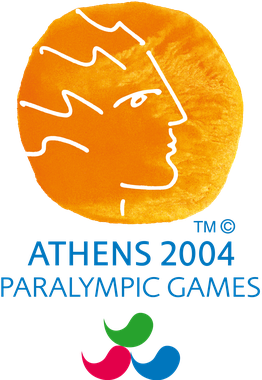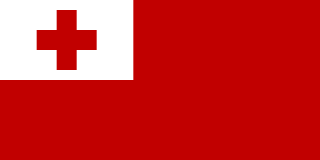
The Paralympic Games or Paralympics, also known as the Games of the Paralympiad, is a periodic series of international multisport events involving athletes with a range of disabilities. There are Winter and Summer Paralympic Games, which since the 1988 Summer Olympics in Seoul, South Korea, are held almost immediately following the respective Olympic Games. All Paralympic Games are governed by the International Paralympic Committee (IPC).

The International Paralympic Committee is an international non-profit organisation and the global governing body for the Paralympic Movement. The IPC organizes the Paralympic Games and functions as the international federation for nine sports. Founded on 22 September 1989 in Düsseldorf, West Germany, its mission is to "enable Paralympic athletes to achieve sporting excellence and inspire and excite the world". Furthermore, the IPC wants to promote the Paralympic values and to create sport opportunities for all persons with a disability, from beginner to elite level.

The 2004 Summer Paralympics, the 12th Summer Paralympic Games, were a major international multi-sport event for athletes with disabilities governed by the International Paralympic Committee, held in Athens, Greece from 17 to 28 September 2004. 3,808 athletes from 136 countries participated. During these games 304 World Records were broken with 448 Paralympic Games Records being broken across 19 different sports. 8,863 volunteers worked along the Organizing Committee.

Tonga sent a delegation to compete at the 2000 Summer Olympics in Sydney, Australia from 15 September to 1 October 2000. Sydney was Tonga's fifth consecutive appearance at a Summer Olympic Games. The Tongan delegation to Sydney consisted of two track and field athletes; Toluta'u Koula and Ana Siulolo Liku; and weightlifter Tevita Kofe Ngalu. Neither of the track athletes advanced beyond the first round of their events, while Ngalu came 13th in the men's 105 kg category.

Several tropical nations have participated in the Winter Olympics despite not having the climate for winter sports. Partly because of that, their entries are a subject of human interest stories during the Games. No tropical nation has ever won a Winter Olympic medal.

A National Paralympic Committee (NPC) is a national constituent of the worldwide Paralympic movement. Subject to the controls of the International Paralympic Committee (IPC), NPCs are responsible for organizing their people's participation in the Paralympic Games.

Tonga has competed in eight editions of the Olympic Summer Games and two of the Olympic Winter Games. It became the smallest independent nation to win an Olympic medal in the Summer games when Super Heavyweight Boxer Paea Wolfgramm earned silver in the 1996 Super heavyweight 91 kg championships in Atlanta.
ʻAna Kilistina Poʻuhila is a Tongan athlete.

Tonga sent a delegation to compete at the 2008 Summer Paralympics in Beijing, China.

Tonga sent a delegation to compete at the 2004 Summer Paralympics in Athens, Greece. The country was represented by a single athlete, Alailupe Valeti, who competed in a shot put event for visually impaired athletes.

Tonga sent a delegation to compete at the 2000 Summer Paralympics in Sydney, Australia. The country was represented by a single athlete, Alailupe Valeti, who competed in the discus and in the shot put, in events for visually impaired athletes. It was Tonga's first participation in the Paralympic Games.

Tonga first participated at the Paralympic Games in 2000, and has sent athletes to compete in every Summer Paralympic Games since then. The country has never taken part in the Winter Paralympics.

Sharon Margaret Rackham, OAM is an Australian Paralympic athlete.

The 2020 Summer Paralympics, branded as the Tokyo 2020 Paralympic Games, was an international multi-sport parasports event held from 24 August to 5 September 2021 in Tokyo, Japan. They were the 16th Summer Paralympic Games as organized by the International Paralympic Committee (IPC).

Tonga participated in the 2012 Summer Paralympics in London, United Kingdom, from August 29 to September 9, 2012. Their participation marked their fourth consecutive Summer Paralympics appearance since their début at the 2000 Summer Paralympics in Sydney. Tonga was represented by the Tonga National Paralympic Committee, and was one of the 45 participating countries that sent only a single athlete. Tonga has always sent only a single athlete from Sydney 2000 to London 2012. Tonga National Paralympic Committee sent a delegation of three people, including one athlete. The sole athlete to represent the nation was ʻAloʻalo Liku, who participated in javelin and discus throw. Liku was the country's flag-bearer during the Games' opening ceremony. Tonga did not win a medal at these Games, however Liku finished with seasonal bests in both the events.

New Zealand competed at the 2016 Summer Paralympics in Rio de Janeiro, Brazil, from 7 to 18 September 2016. It was the nation's thirteenth appearance at the Summer Paralympics, having made its debut in 1968 and appeared in every edition since.

Tonga competed at the 2016 Summer Paralympics in Rio de Janeiro, Brazil, from 7 September to 18 September 2016.
Tupou Neiufi is a New Zealand para-swimmer who represented her country at the 2016 Summer Paralympics and the 2018 Commonwealth Games. She won a silver medal at the 2019 World Para Swimming Championships and gold at the 2020 Summer Paralympics in Tokyo.
Kuinini Manumua is a Tongan-American weightlifter. She competed at the 2020 Summer Olympics in the Women's +87 kg category, the first athlete representing Tonga to do so. She placed in eighth.
Based on the survey conducted by the Tonga Red Cross Society and Disability Advisory Committee, there are 2,782 people with varying degrees of disability in Tonga, which makes up about 2.8% of the total population.







